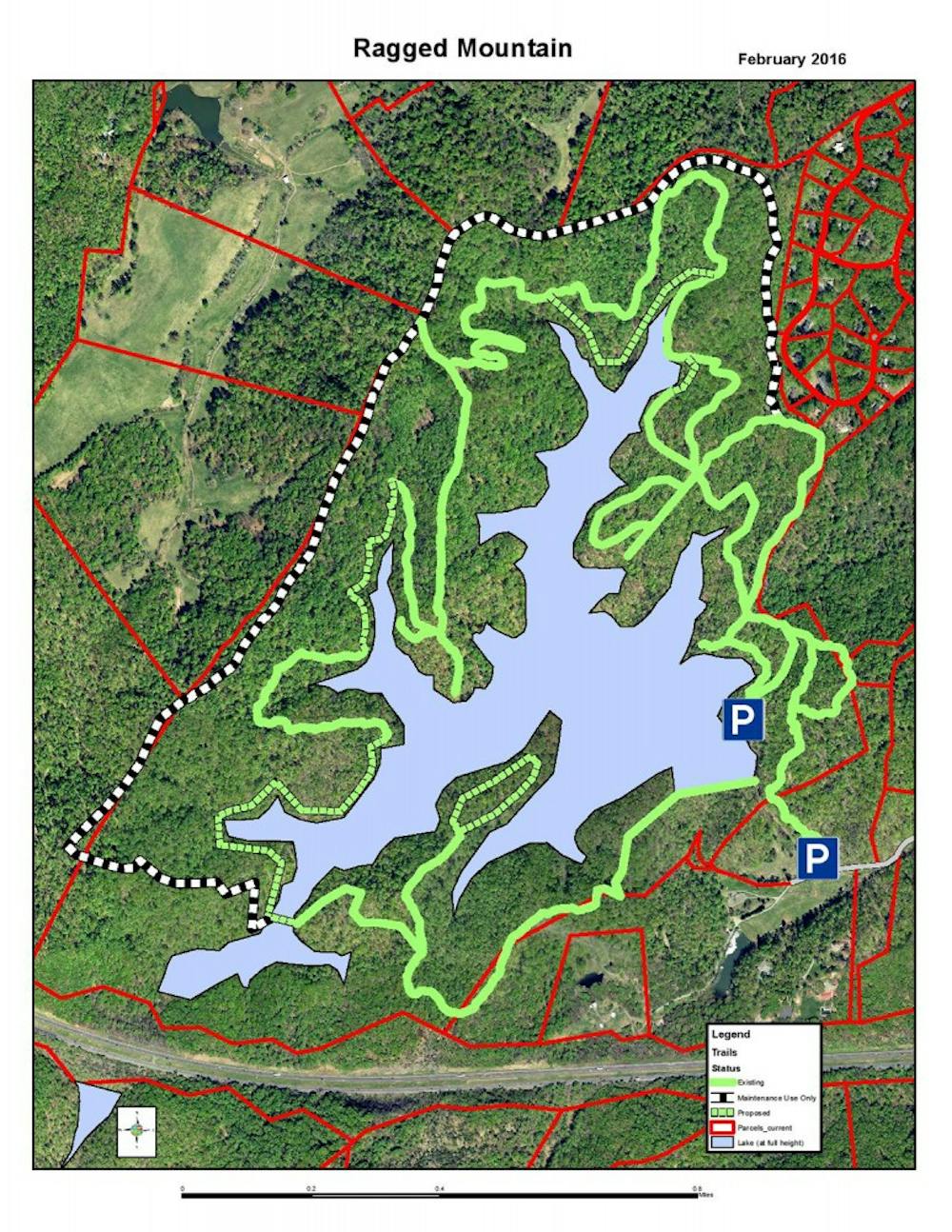Following nearly a year of debate, the Parks and Recreation Advisory Committee recently voted to support bike use on designated trails of the Ragged Mountain Natural Area.
The Ragged Mountain Natural Area is a 980-acre site located about four miles west of Grounds.
The Oct. 19 recommendation will next be reviewed by the City’s Planning Commission before going before the City Council for a final vote.
The trails in the Ragged Mountain area can currently only be used for walking and hiking, but the city decided to reconsider the uses of the area after taking complete possession of the land from the Ivy Creek Foundation several years ago.
Jody Lahendro — University supervisory historic preservation architect, who also serves on the City Planning Commission and the Parks and Recreation Advisory Committee — said the committee has heard a substantial amount of feedback from the public regarding the trails.
“In all the the things I have been involved in on the advisory committee, this has certainly gotten the most attention,” Lahendro said.
The committee spent about a year studying the Ragged Mountain Natural Area’s land, as well as conducting an ecological study and holding several public hearings before ultimately voting on the recommendation.
The committee voted in October between four options — keeping the area “as is” with only walking and hiking trails, allowing bikes on designated trails, allowing leashed dogs on designated trails or allowing both leashed dogs and bikes on designated trails.
Lahendro said he personally did not support the recommendation for bike access on the grounds that allowing them onto the trails could be disruptive to others.
“I felt like we have several parks in the area that already allow biking and we only have one natural area that preserves the natural ecology,” Lahendro said. “I felt that this was needed to have a place where people can quietly connect with nature without having to listen to recreational uses.”
Parks and Recreation Advisory Board Member Elise Cruz, who is also a recent graduate from the Architecture School’s Urban and Environmental Planning master's program, said she personally supported the recommendation for shared-use trails for a variety of reasons.
“There is a large amount of land that is available at Ragged Mountain,” Cruz said. “I think it allows for shared uses that [are] not going to negatively impact any one group's experience.”
Allowing mountain biking could also bring in more young people and families to the area, Cruz added.
“What I was thinking was that — whether it was more people out there hiking or biking — we can't give up the opportunity to invite more young people to get involved in caring about the land,” Cruz.
More than 60 community members also spoke at the public hearing to voice their opinion on the relative value of allowing bikes on the Ragged Mountain trails.
The conversation has been ongoing and almost equally split, Lahendro said.
However, both Cruz and Lahendro said there was very little debate about continuing to disallow dogs on the trails.
“We recommend that no dogs be allowed,” Lahendro said. “We felt that would be too disruptive. Not only that, but there are many people that are afraid of dogs — especially children.”
The reservoir at the Ragged Mountain natural area is a source of drinking water and many people felt were concerned about the difficulty of more animal waste, Cruz added.
The City Council is most likely going to review the committee’s recommendation to allow bikes at Ragged Mountain in December, after the Planning Commission reviews the details.







